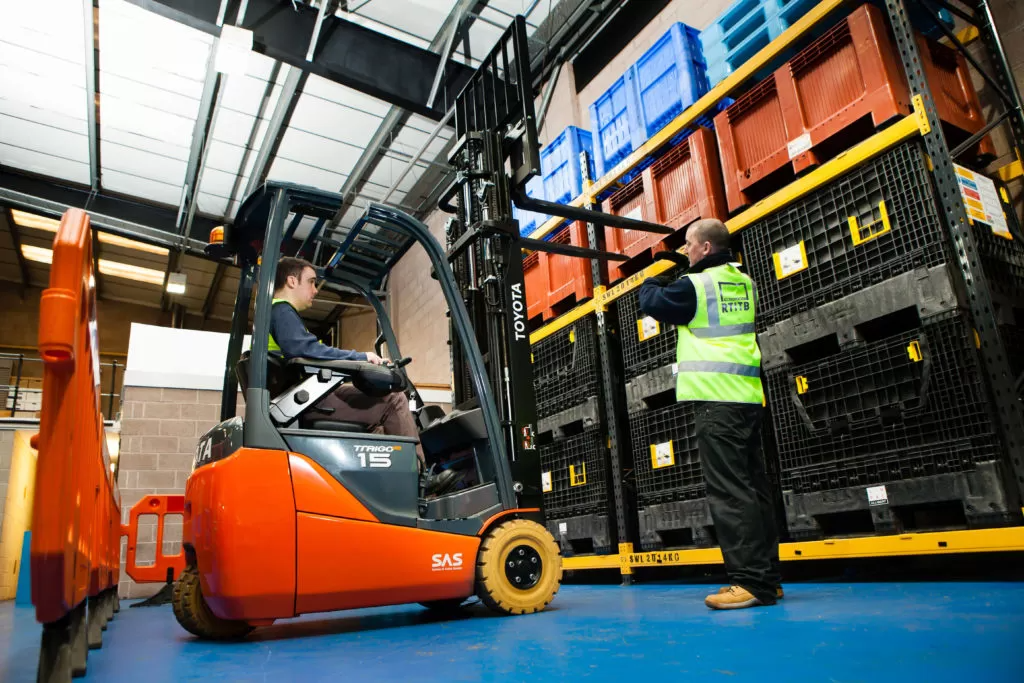Forklifts are commonly used in industries for different purposes, including warehouses, industries, and construction. The machine helps to handle all heavy load items. With the help of a forklift, you can
However, it is not as simple as it seems to operate a forklift or any other kind of material handling device. Forklift operators, who are not subjected to the relevant training, expose themselves and other employees and companies to danger when operating forklifts. Professional training in the use of forklifts is therefore very important to be offered to anyone working in fields where the machines are warranted.

Types of Forklift Training Courses
Counterbalance Forklift Training:
Counterbalance forklifts are those kinds of forklifts most commonly used at warehouses and construction sites. It has a rear counterweight to counterbalance the weight of the load, allowing operators to move heavy loads safely. The course prepares individuals on how to safely operate the forklift, including procedures for lifting, transporting, and unloading goods in a manner that will not jeopardize the safety of the operator or anyone else. During training, participants will learn:
- Proper inspection of the forklift before use
- Dealing with different load types
- Maneuvering inside narrow aisles
- Utilising safety features to include load limiters and alarms
- Such training is essential if you are involved in the working area of a warehouse, manufacturing plant, or distribution centre.
Reach Truck Training:
Reach trucks are another well-used equipment in narrow aisle operations. These trucks are specifically designed to lift and reach high shelves and racking systems. However, they come with their peculiar challenges. Reach truck training addresses the skills necessary to operate the reach truck safely in tight locations, usually at high levels. Operators will learn:
- How to navigate narrow aisles
- How to correctly position the forks and lift loads to extreme heights
- Understanding the specific limitations of reach trucks
Scissor Lift Training:
In addition to forklifts, scissor lifts are widely used in construction and maintenance jobs for reaching elevated heights. Unlike forklifts, scissor lifts are often used for tasks like cleaning, painting, or assembling structures. Operators must be trained to use these machines properly to avoid accidents like tip-overs or falls. Scissor lift training covers:
- How to safely set up and operate a scissor lift
- Understanding load capacities
- Proper usage of guardrails and safety features
- Emergency procedures
Forklift Training in Birmingham and Telford: Why Choose Professional Courses?
Enrolling in a professional forklift training centre in these locations offers several advantages:
Certified Instructors: Professional trainers are well-experienced and knowledgeable in the industry. They are good at communicating key safety-related skills and making the operators ready to encounter a real-world scenario.
Practical Training: The number one factor in training for forklift handling is practice. There are numerous courses for forklift training in Birmingham and Telford that have rooms to use various types of equipment, allowing operators to train on actual machines under complete control in a safe environment.
Flexible Courses: Courses offered in flexible forklift training in Telford in a variety of formats, accommodating busy schedules. Some centres offer weekend and evening classes, as well as customized training for businesses with multiple employees.

Conclusion: There is No Safety, Then, There is No Productivity
When discussing correct forklift training, receiving a certification is not a single solution; a person should also create a safe environment and an efficient workplace. It will not only help maintain a safe workplace but also ensure you meet the legal safety limits and improve performance. So, choose the right training for your team to give them the proper training needed to operate and handle the machinery safely.





Comments